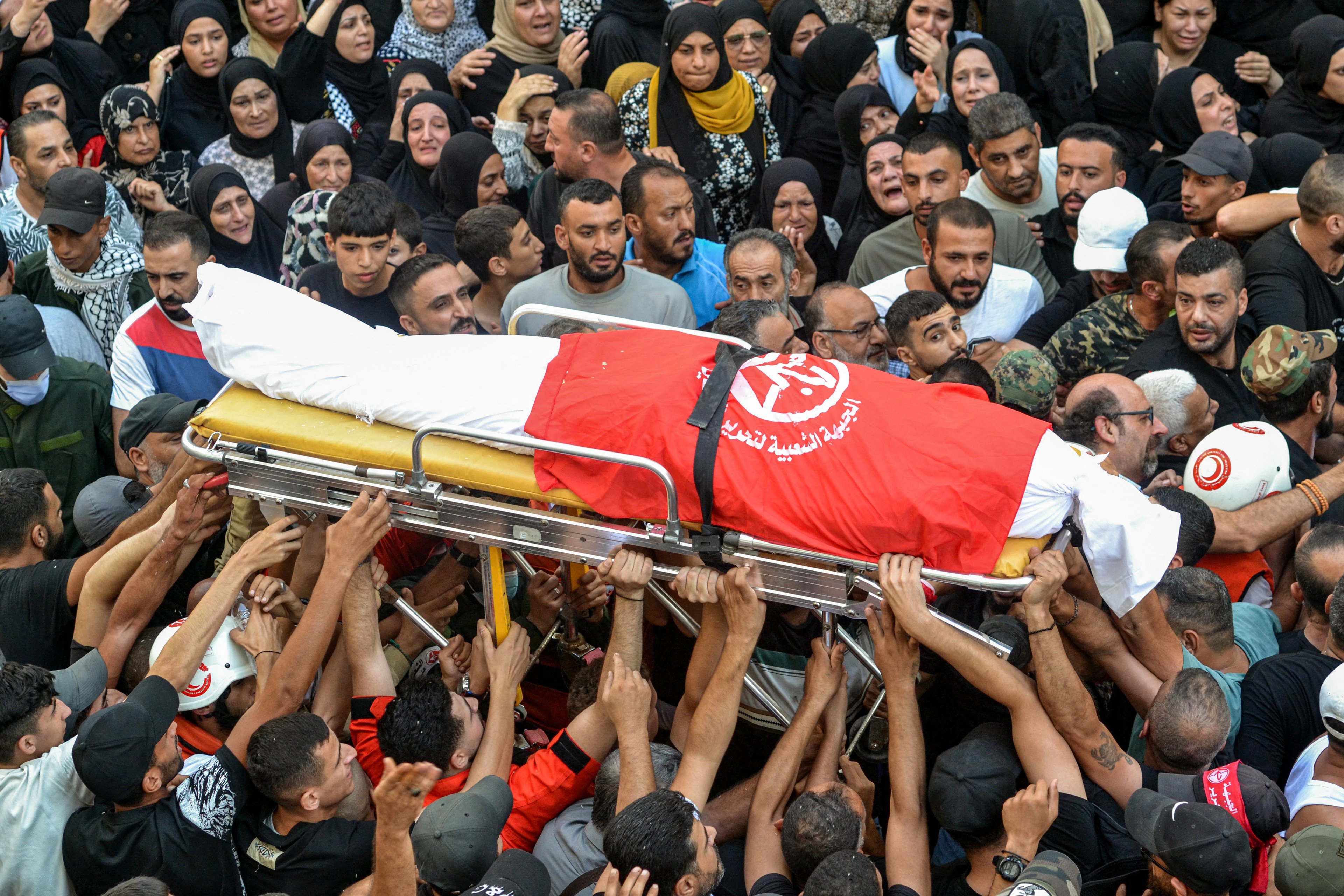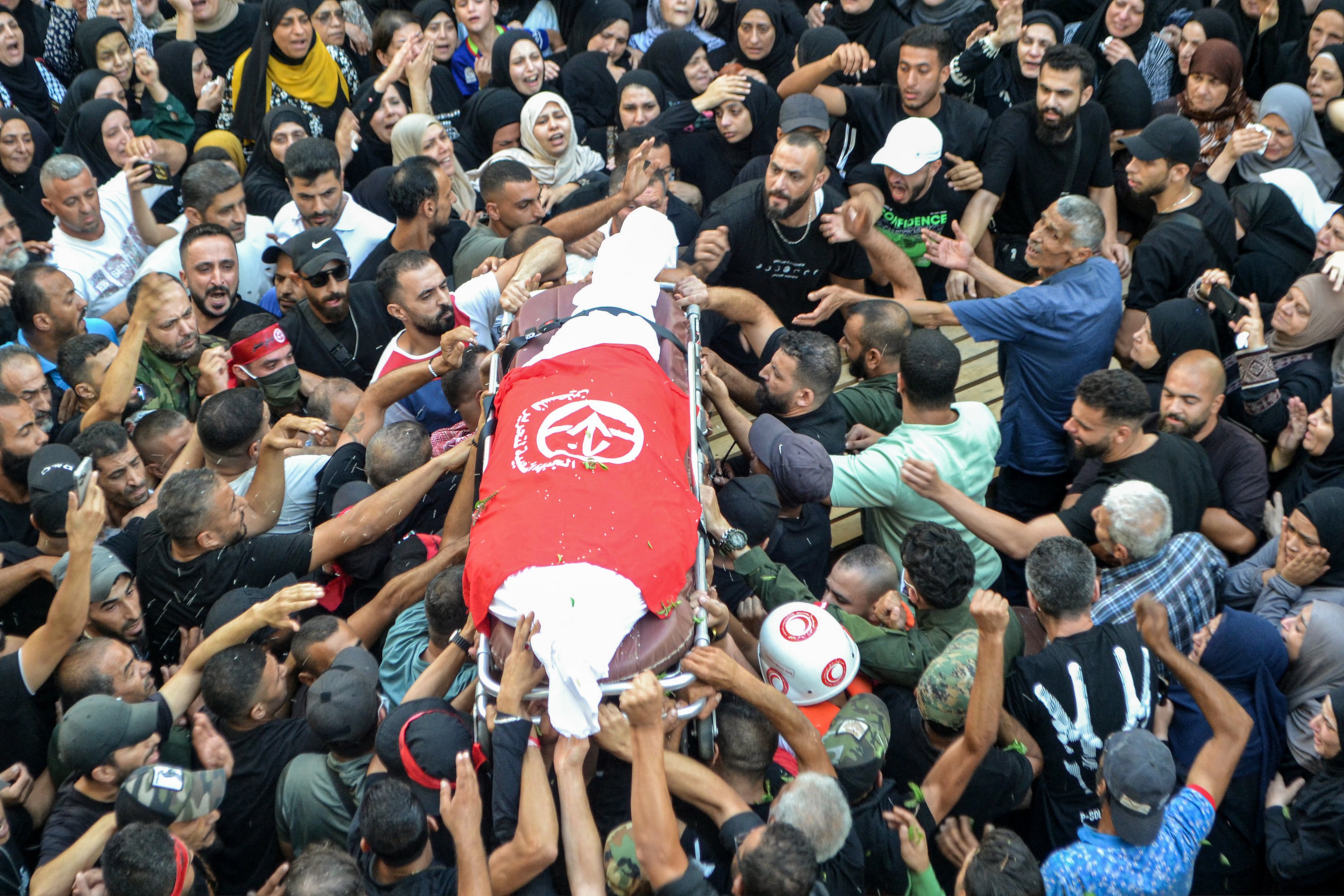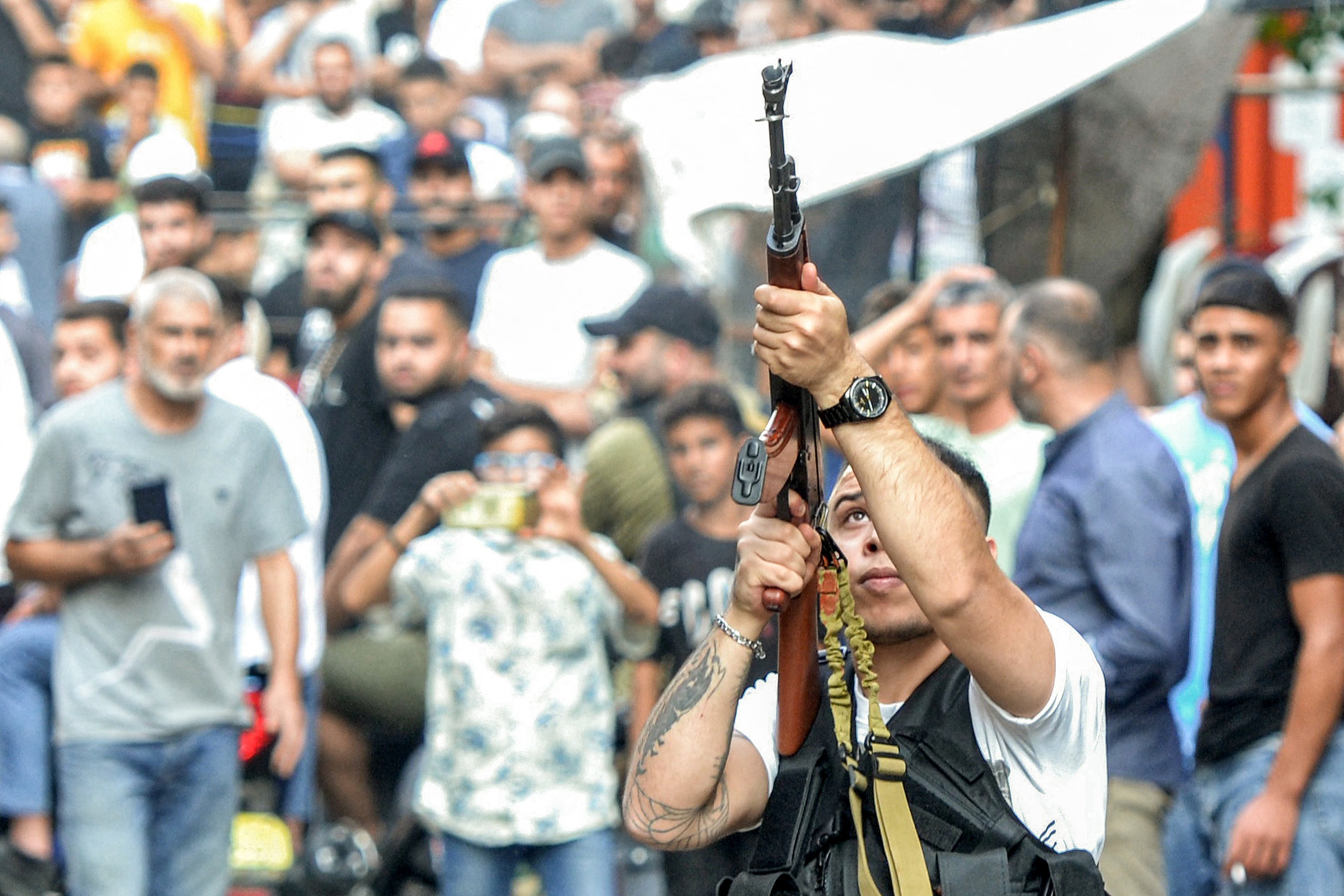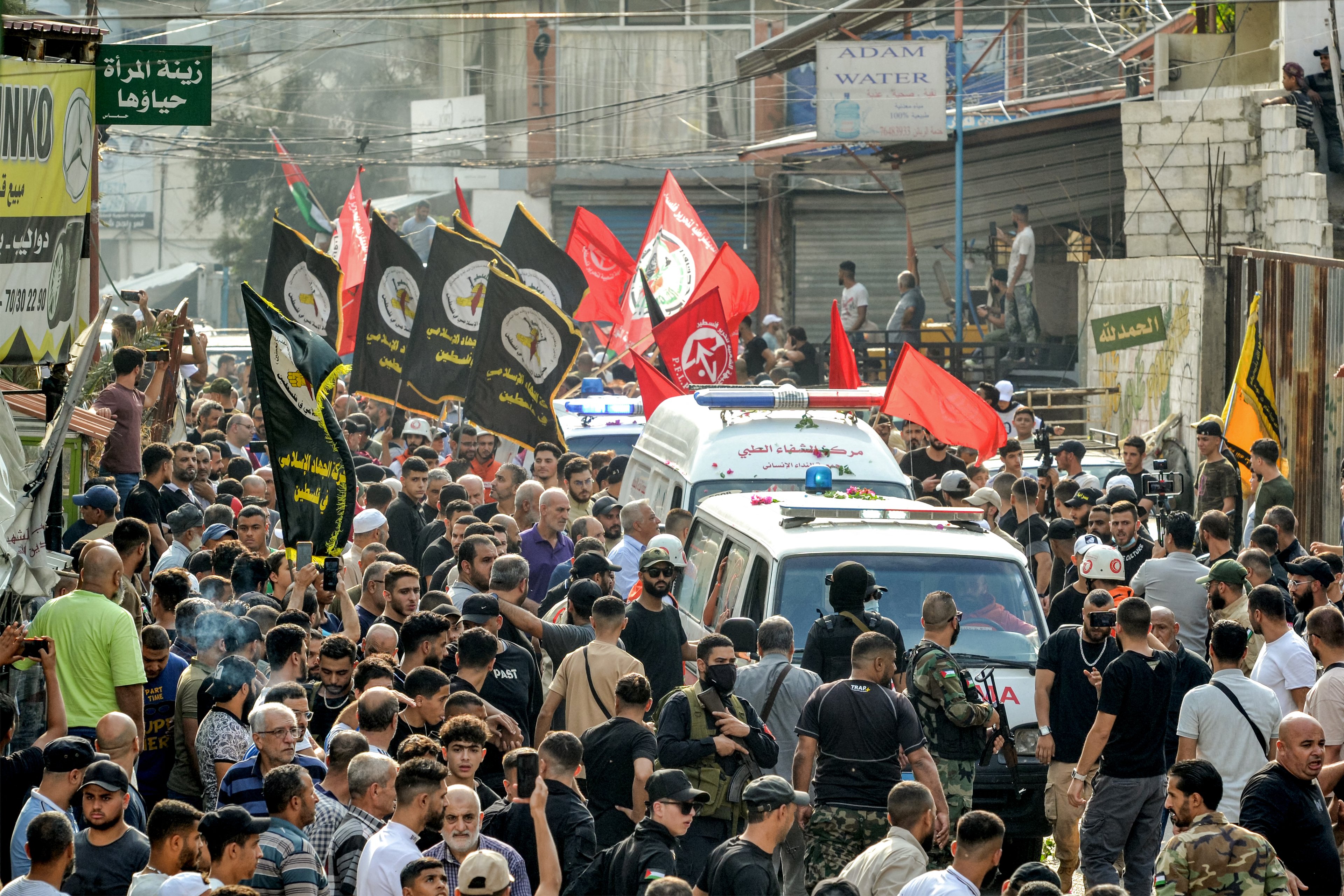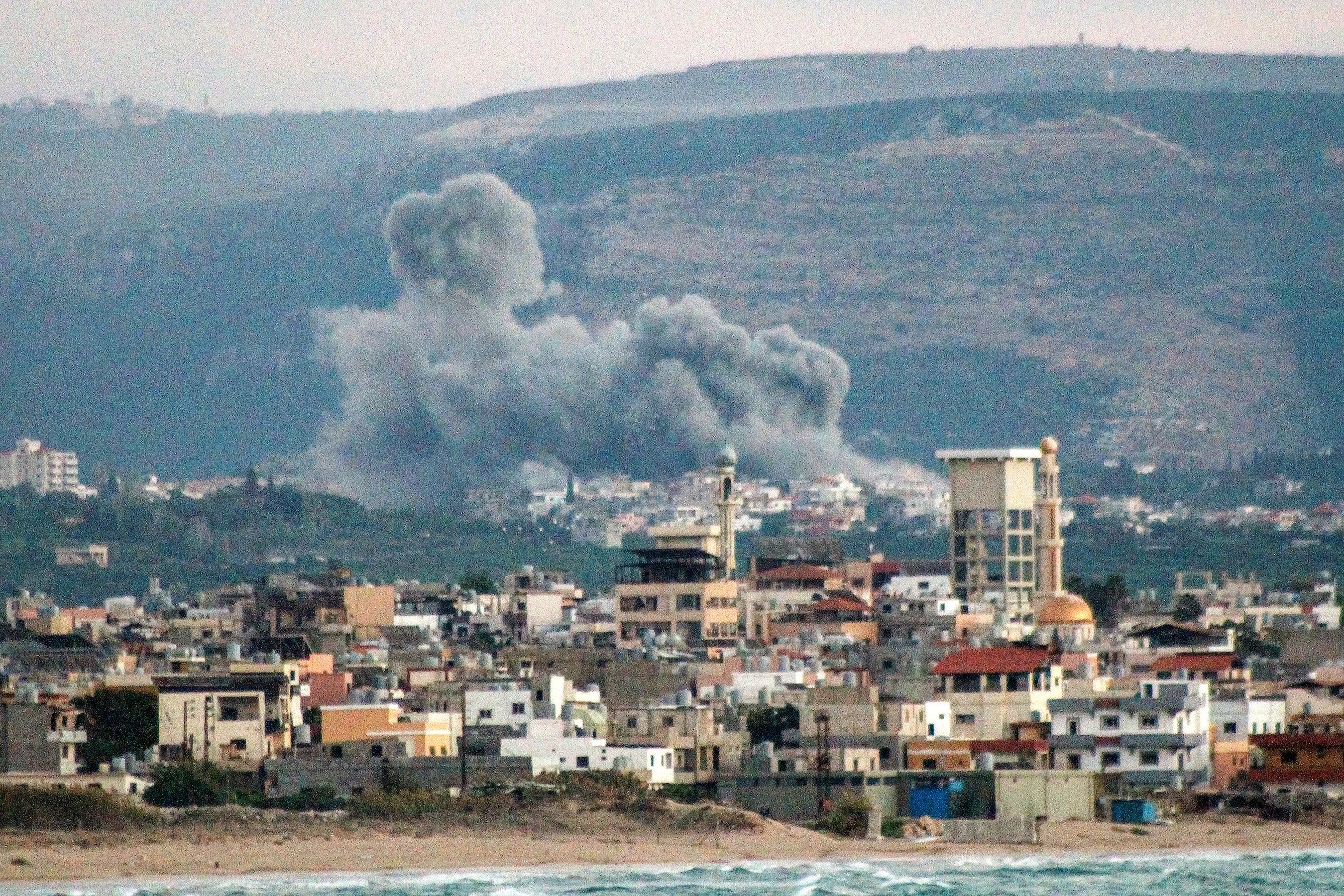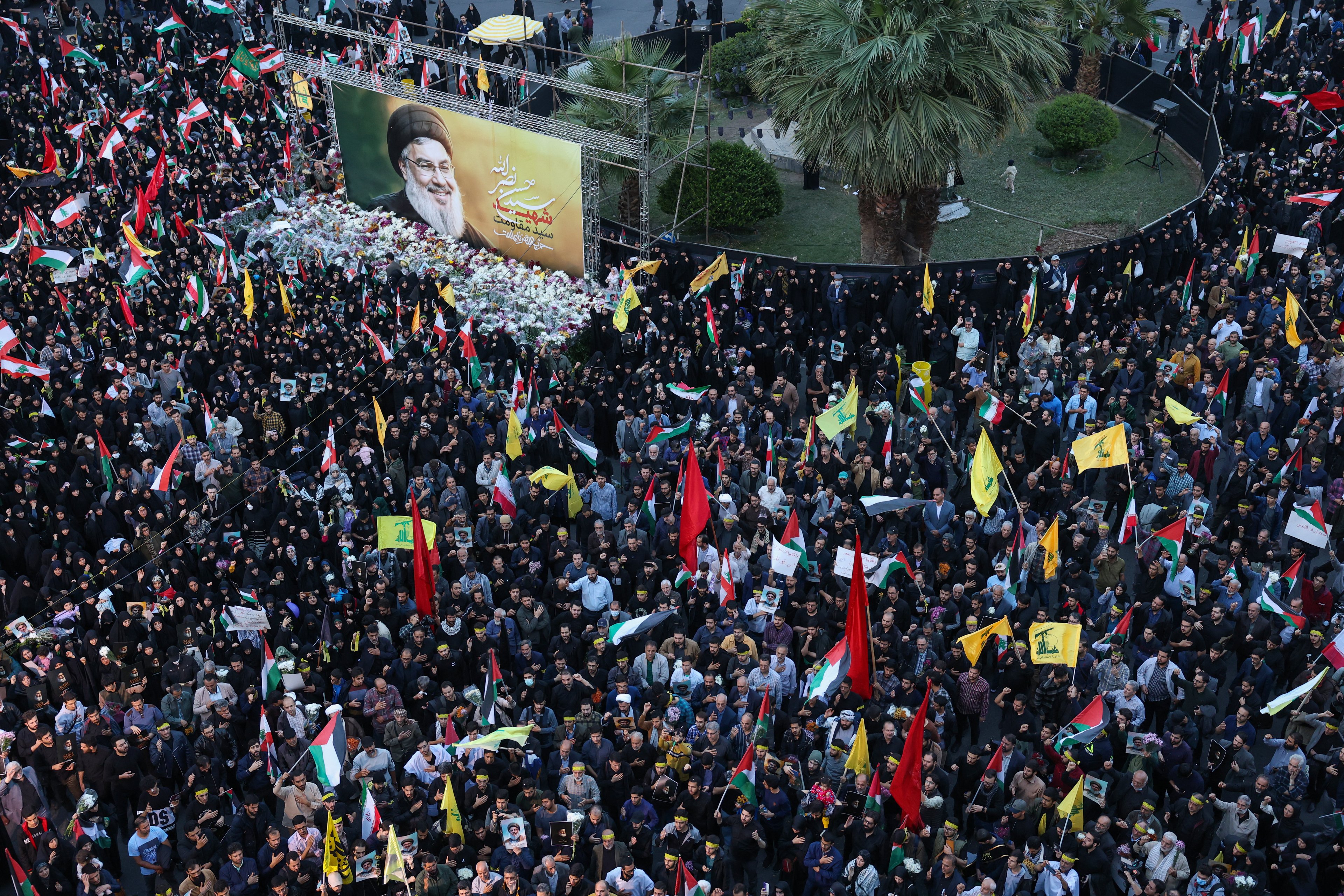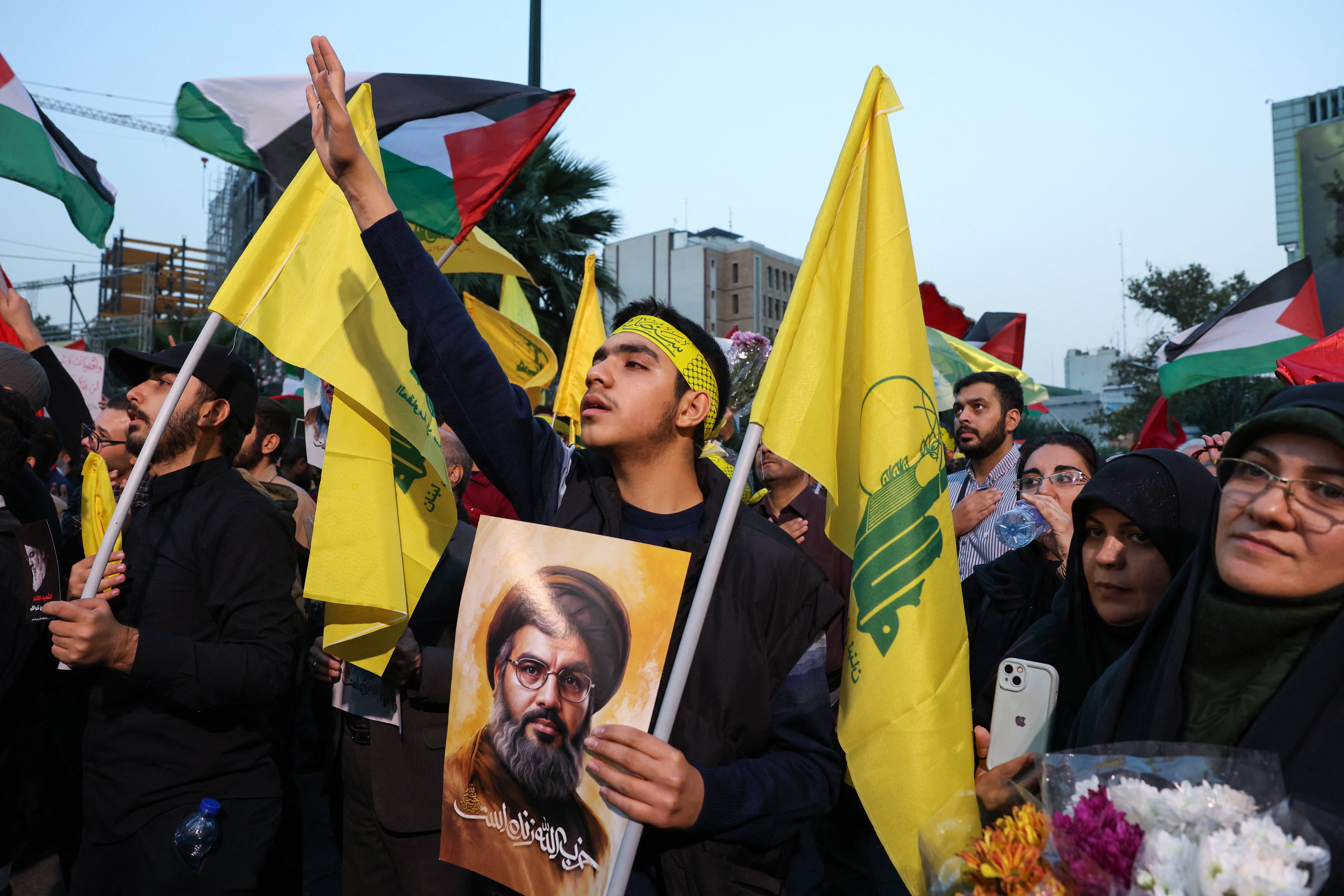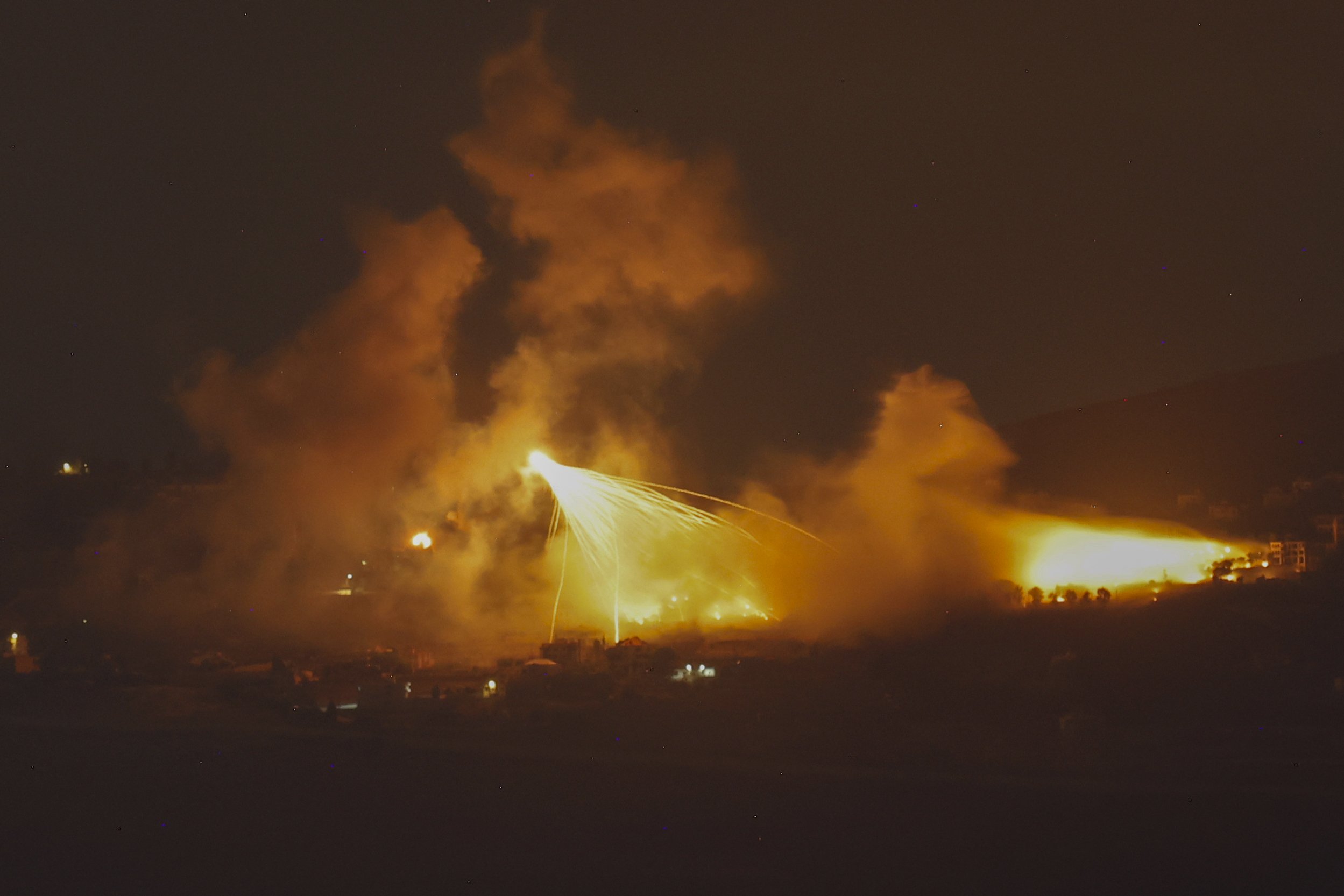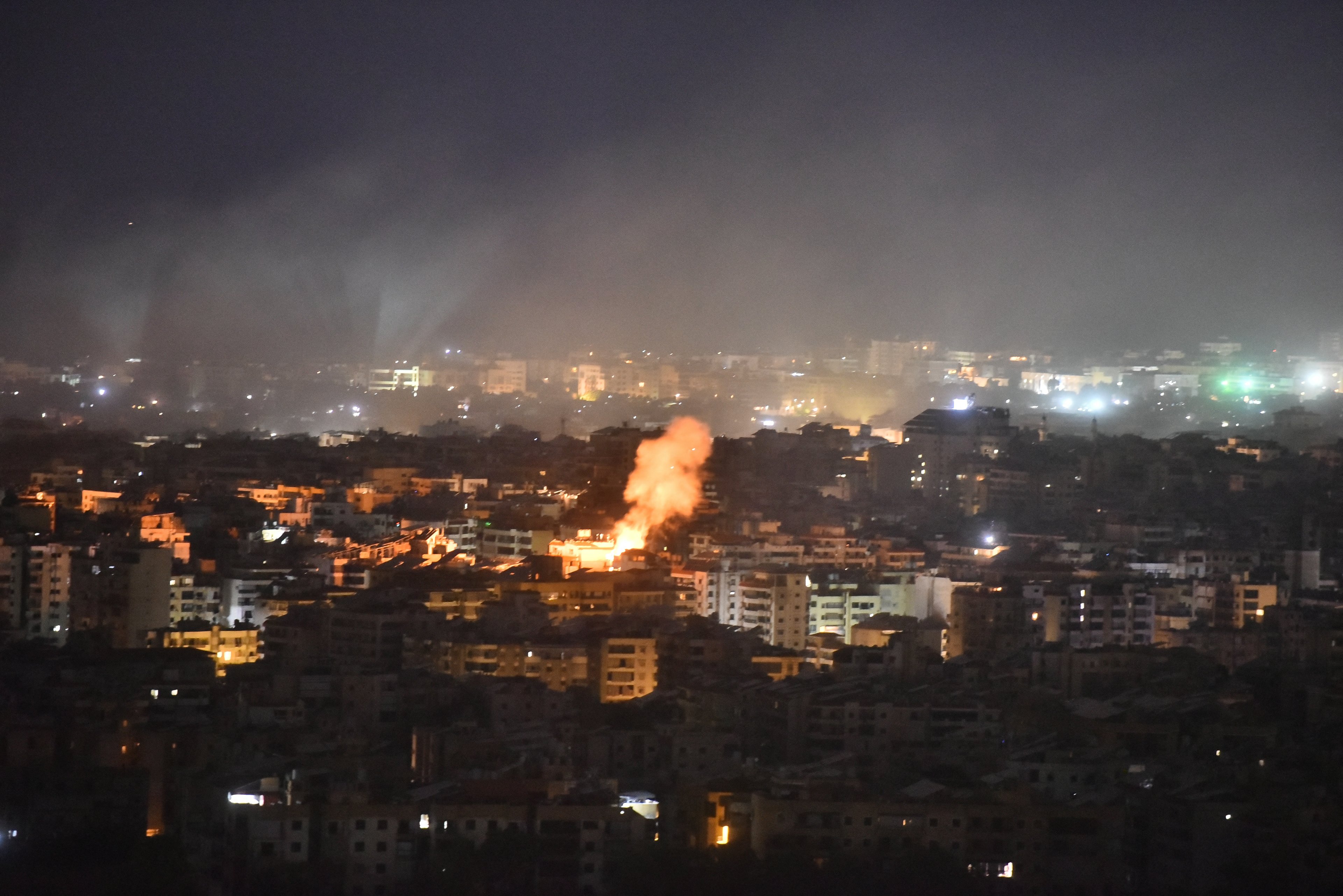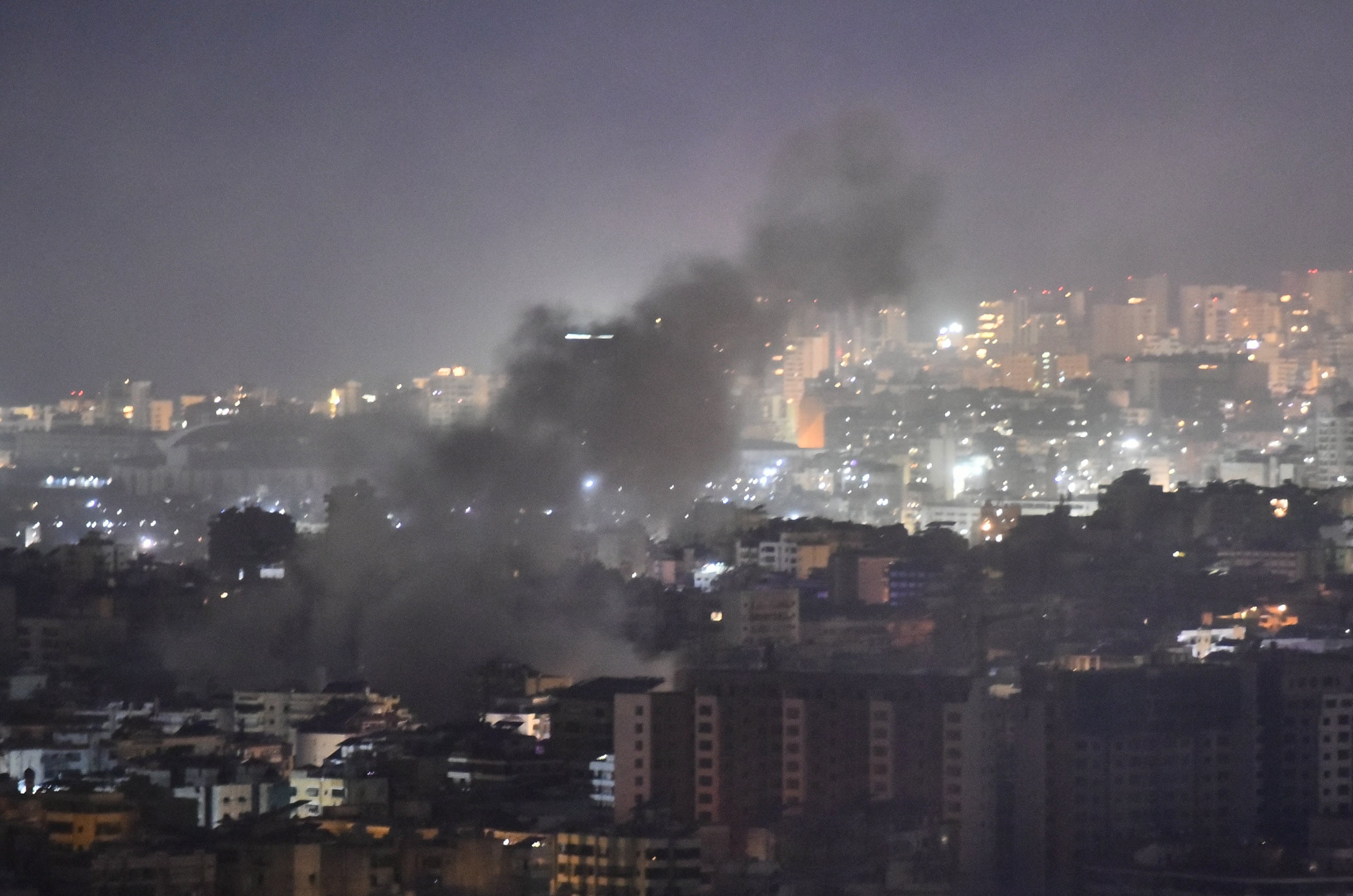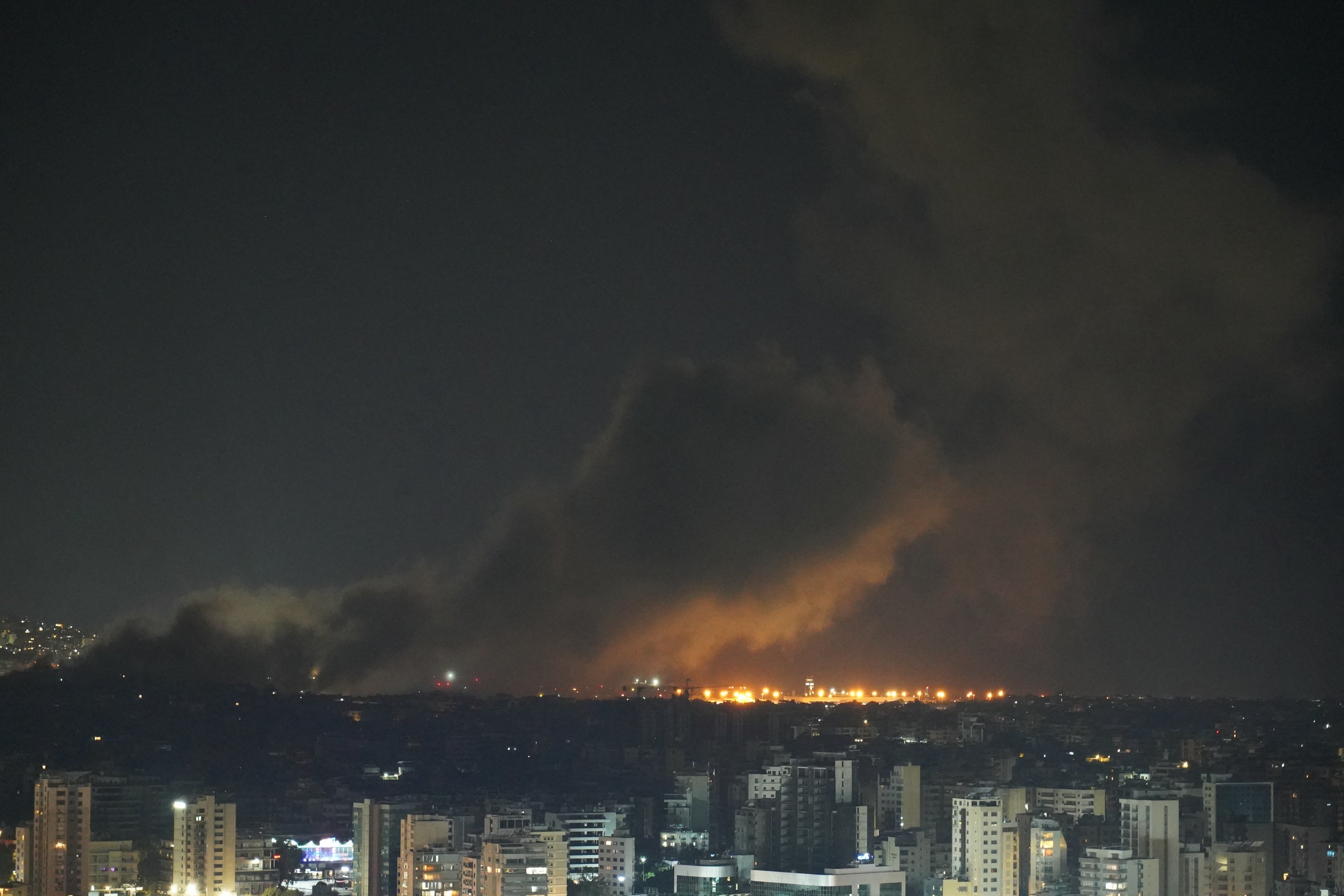O preço do petróleo começou o quarto trimestre em queda, pressionado pela expectativa de aumento na oferta global e pela incerteza geopolítica no Oriente Médio. O barril de Brent, referência internacional, foi negociado perto de US$ 71 (R$ 385,53), após encerrar a segunda-feira, 30, com leve alta. As informações são da Bloomberg.
A Líbia, um dos grandes produtores de petróleo, está se preparando para retomar sua produção, após um acordo entre os dois governos rivais sobre a liderança do banco central do país. Esse entendimento pode trazer um aumento na oferta, afetando diretamente o mercado global. No entanto, as tensões no Oriente Médio permanecem elevadas, com o exército de Israel iniciando operações terrestres no Líbano, o que adiciona riscos à equação.
-
1/11
Mourners in the Nahr al-Bared camp for Palestinian refugees gather for the funeral of commanders of the Popular Front For the Liberation of Palestine (PFLP) group who were killed by an overnight Israeli air strike in Beirut, at the camp near Lebanon's northern city of Tripoli on September 30, 2024. (Photo by Fathi AL-MASRI / AFP)
(LEBANON-ISRAEL-PALESTINIAN-CONFLICT)
-
2/11
Mourners in the Nahr al-Bared camp for Palestinian refugees gather for the funeral of commanders of the Popular Front For the Liberation of Palestine (PFLP) group who were killed by an overnight Israeli air strike in Beirut, at the camp near Lebanon's northern city of Tripoli on September 30, 2024. (Photo by Fathi AL-MASRI / AFP)
(LEBANON-ISRAEL-PALESTINIAN-CONFLICT)
-
3/11
A fighter fires live rounds into the air from an assault rifle during the funeral of two commanders and one member of the Popular Front For the Liberation of Palestine (PFLP) group who were killed by an overnight Israeli air strike in Beirut, at the Beddawi camp for Palestinian refugees near Lebanon's northern city of Tripoli on September 30, 2024. (Photo by Fathi AL-MASRI / AFP)
(LEBANON-ISRAEL-PALESTINIAN-CONFLICT)
-
4/11
Mourners gather by ambulances transporting the bodies of two commanders and one member of the Popular Front For the Liberation of Palestine (PFLP) who were killed by an overnight Israeli air strike in Beirut, during the funeral at the Beddawi camp for Palestinian refugees near Lebanon's northern city of Tripoli on September 30, 2024. (Photo by Fathi AL-MASRI / AFP)
(LEBANON-ISRAEL-PALESTINIAN-CONFLICT)
-
5/11
Conflitos no Oriente Médio: sem sinal de solução à vista
(LEBANOJN-ISRAEL-PALESTINIAN-CONFLICT)
-
6/11
Iranians hold pictures of Hezbollah leader Hassan Nasrallah, who was killed in an Israeli air strike on Beirut's southern suburbs on September 27, during an anti-Israel protest in Palestine Square in Tehran on September 30, 2024. (Photo by ATTA KENARE / AFP)
(IRAN-LEBANON-PALESTINIAN-ISRAEL-CONFLICT)
-
7/11
Iranians hold pictures of Hezbollah leader Hassan Nasrallah, who was killed in an Israeli air strike on Beirut's southern suburbs on September 27, during an anti-Israel protest in Palestine Square in Tehran on September 30, 2024. (Photo by ATTA KENARE / AFP)
(IRAN-LEBANON-PALESTINIAN-ISRAEL-CONFLICT)
-
8/11
A picture taken from northern Israel, along the border with southern Lebanon, on September 30, 2024 shows a fire following Israeli bombardment on an area of south Lebanon. The Israeli military said Tuesday troops have started "targeted ground raids" in villages of southern Lebanon. The incursions backed by airstrikes and artillery began "a few hours ago" and are targeting militant group Hezbollah "in villages close to the border" with Israel, a military statement said. (Photo by Jalaa MAREY / AFP)
(LEBANON-ISRAEL-PALESTINIAN-CONFLICT)
-
9/11
Smoke rises from the site of an Israeli airstrike that targeted a neighborhood in Beiruts southern suburb early on October 1, 2024. The Israeli military said Tuesday troops have started "targeted ground raids" in villages of southern Lebanon. The incursions backed by airstrikes and artillery began "a few hours ago" and are targeting militant group Hezbollah "in villages close to the border" with Israel, a military statement said. (Photo by Fadel ITANI / AFP)
(Exchanges of fire on Lebanon-Israel border after Hamas offensive)
-
10/11
Smoke rises from the site of an Israeli airstrike that targeted a neighborhood in Beiruts southern suburb early on October 1, 2024. The Israeli military said Tuesday troops have started "targeted ground raids" in villages of southern Lebanon. The incursions backed by airstrikes and artillery began "a few hours ago" and are targeting militant group Hezbollah "in villages close to the border" with Israel, a military statement said. (Photo by Fadel ITANI / AFP)
(Exchanges of fire on Lebanon-Israel border after Hamas offensive)
-
11/11
Smoke rises from the site of an Israeli airstrike that targeted a neighborhood in Beiruts southern suburb early on October 1, 2024. A Lebanese security official said Israel had conducted at least six strikes on south Beirut in the night from Monday to Tuesday, after Israel's army called on residents in the Hezbollah stronghold to evacuate. (Photo by ETIENNE TORBEY / AFP)
(Exchanges of fire on Lebanon-Israel border after Hamas offensive)
Impacto do aumento da produção
A recente queda nos preços, com o petróleo Brent acumulando uma desvalorização de quase 17% no último trimestre, reflete o otimismo em torno do aumento da produção pelos países da Opep+, além da desaceleração econômica na China, um dos maiores consumidores de petróleo do mundo. A expectativa é que o cartel de produtores cumpra seu plano de reintroduzir a oferta no mercado, o que deve manter os preços pressionados para baixo.
Um dos fatores determinantes para essa queda de preço tem sido a percepção dos investidores de que, apesar das tensões geopolíticas, os riscos de interrupção no fornecimento de petróleo não se concretizaram até o momento.
Próximos passos da Opep+
A Organização dos Países Exportadores de Petróleo (Opep+) realizará uma reunião online na quarta-feira, 2, para monitorar o mercado. A aliança, que inclui grandes produtores como Arábia Saudita e Rússia, deve iniciar o aumento gradual de sua produção a partir de dezembro. Segundo o vice-primeiro-ministro russo, Alexander Novak, o grupo não está discutindo novas propostas no momento, mantendo o foco em restaurar a oferta.
O cenário global continua dividido entre os fatores de oferta e demanda. Por um lado, a retomada da produção na Líbia e o aumento planejado pela Opep+ devem pressionar os preços para baixo. Por outro, as tensões geopolíticas no Oriente Médio, especialmente envolvendo Israel e o Hezbollah no Líbano, adicionam uma camada de incerteza ao mercado.
Essa dinâmica deve continuar influenciando os preços do petróleo nos próximos meses, com os analistas atentos às decisões da Opep+ e ao desenrolar dos conflitos na região. A expectativa é de que a volatilidade nos preços reflita tanto o aumento da oferta quanto os riscos geopolíticos.
:format(webp))
